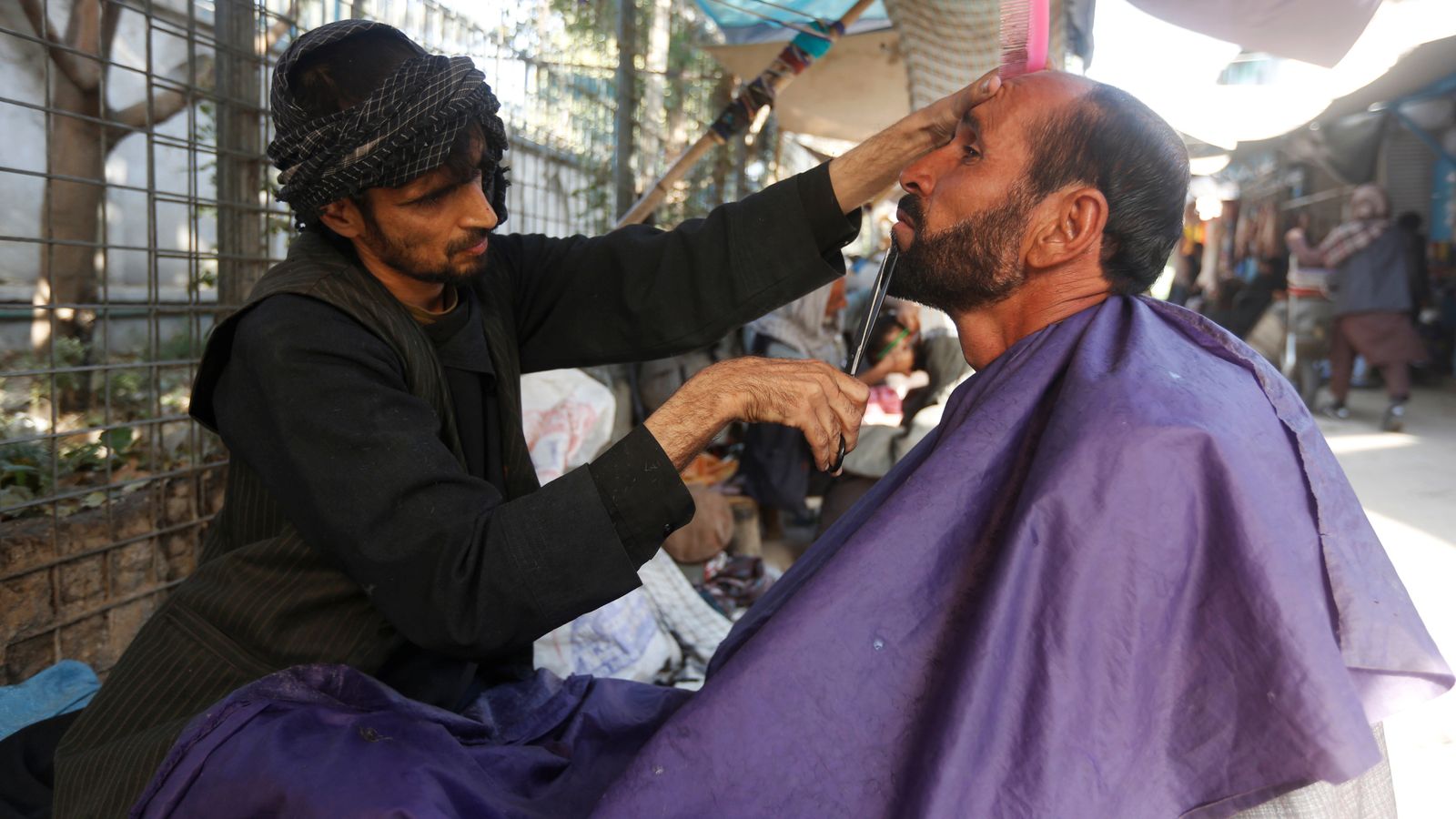Barbers in Afghanistan’s Helmand province have been banned by the Taliban from shaving or trimming beards.
The order was issued on Monday and marks the latest in a series of restrictions placed on the country’s residents based on the Taliban’s strict interpretation of Islamic law.
Sharia law is Islam’s legal system – which is based on the Koran and the rulings of Islamic scholars – and acts as a code of conduct for modern Muslims to adhere to, ensuring they abide by God’s wishes in all areas of life from daily routines to personal beliefs.
“If anyone violates the rule (they) will be punished and no one has a right to complain,” said the new regulation, issued by the provincial Taliban government’s vice and virtue department to barbers in Lashkar Gah, the provincial capital.
It was not immediately clear what penalties the barbers could face if they breached the order.
During their previous rule of Afghanistan in the late 1990s, the Taliban demanded men grow beards.
After the group were ousted from power following the US-led invasion in 2001, shaved or cleanly trimmed beards became popular in the country.
Afghanistan: UK paid out for 289 civilian deaths, analysis shows – with one family getting just £104
Afghanistan: Defence Secretary Ben Wallace ‘pretty angry’ over MoD’s data breaches
Taliban 2.0 – a future for Afghanistan in their hands?
“I request our Taliban brothers to give freedom to people to live the way they want, if they want to trim their beard or hair,” one barber told the AP news agency.
Follow the Daily podcast on Apple Podcasts, Google Podcasts, Spotify, Spreaker.
“Now we have few clients coming to us, they are scared, they don’t want to trim their hair or beards, so I request them let people free, so we have our business and people can freely come to us.”
Another, Sher Afzal, added: “If someone comes for a haircut, they will come back to us after 40 to 45 days, so it is affecting our business like any other businesses.”
The latest regulation is one of several moves which signal the Taliban have not been swayed by international criticism and that they are sticking to their current hardline path despite initial promises of a more moderate rule, inclusivity and upholding women’s rights since regaining control of the country.
In recent weeks it has appointed an all-male government and has banned girls in grades six to 12 from returning to school, while some female employees have been told to stay at home.






















